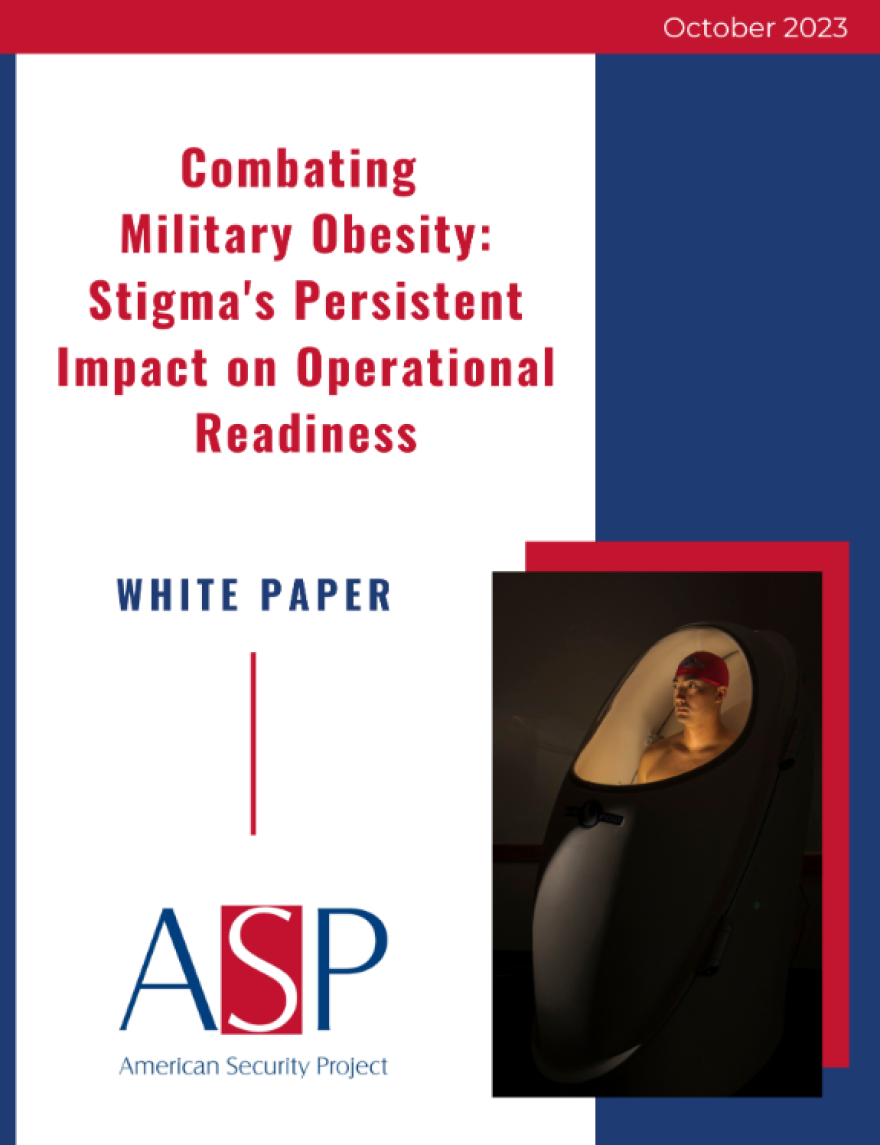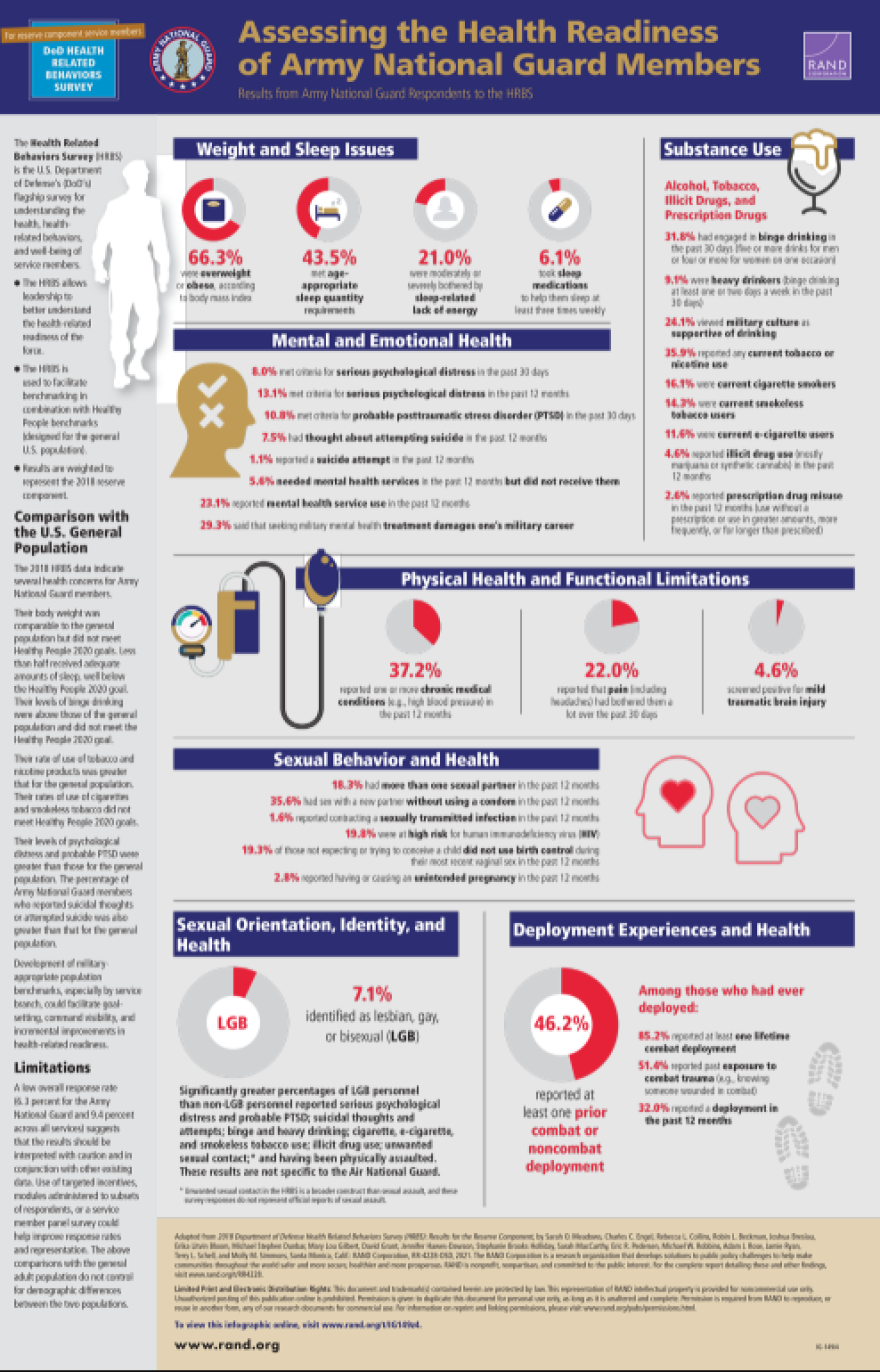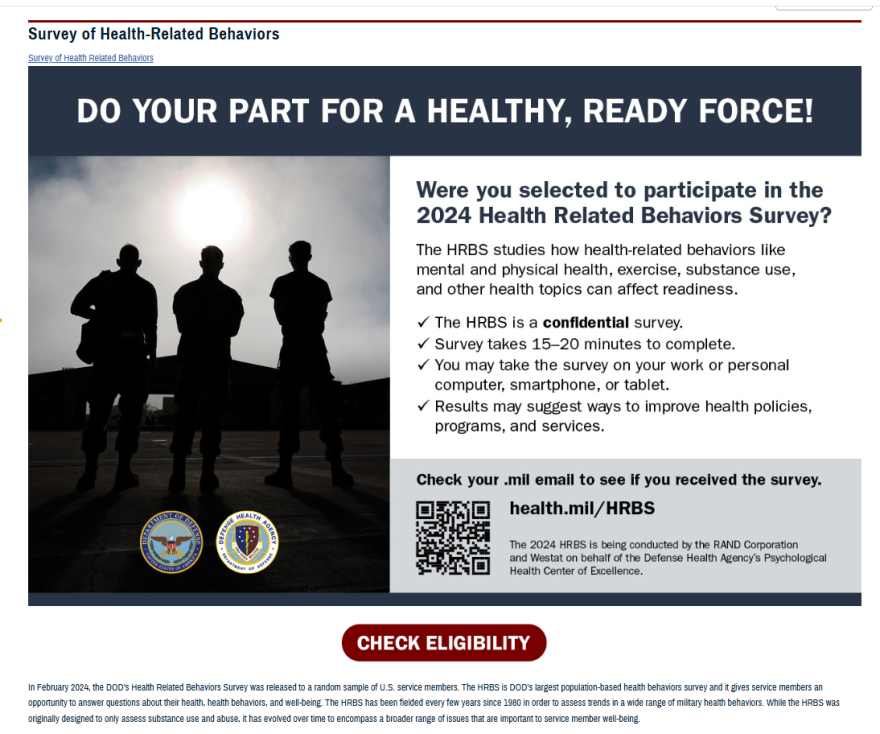News headlines of the seven Texas National Guard troops removed from deployment to Chicago for failing to meet fitness standards came and went earlier this month. The attention was fueled largely by recent statements made by Defense Secretary Pete Hegseth to top military commanders that, “It’s tiring to look out at combat formations, or really any formation, and see fat troops.”

Yet, as this news story momentarily fades into the media ether, it belies a far more serious and now well-studied, if not well-known, festering crisis of obesity in the National Guard, and reserves. An estimated 68% of U.S. Armed Forces in the National Guard and reserves “are overweight or have obesity.”

That’s according to a white paper report released April 24, 2025, by American Security Project (ASP), a nonprofit, nonpartisan Washington D.C.-based think tank created in 2006, and known primarily through its connection with its two prominent founders, former U.S. Senators John Kerry and Chuck Hagel. ASP specializes in national security issues. ASP’s 22-page report, entitled, “Ready the Reserve: Obesity’s Impacts on National Guard and Reserve Readiness,” concludes that, “rising weight-related illnesses present a growing threat to manpower, mission readiness, and service member well-being.” Further exacerbating the critical weaknesses in troop readiness among United States Armed Forces’ reserve component, is their transformation in recent decades “as an integral operational force in overseas military operations and a key safeguard for U.S. national security.”

Or put more plainly, the National Guard and reserves now comprise more than one-third of the total U.S. military force, according to ASP’s 2023’s previous white paper, “Combating Military Obesity,” citing DoD figures. The 2023 report also revealed two key findings researchers described as troubling developments:
- Despite being a chronic disease with several FDA-approved treatment options, antiquated body composition policies and stigma prevent effective treatment of obesity within the Armed Forces.
- The removal of body mass statistics from military recruitment and disability reports used by DoD stakeholders and Congress has resulted in incomplete and misleading conclusions. This data is needed to identify at-risk populations and design effective, evidence-based interventions.

The research mentioned thus far builds upon the decades of research established by the Department of Defense (DoD) in 1980, known as the Health Related Behaviors Survey (HRBS). This randomized, confidential survey of about 140,000 service members from the Army National Guard, Army Reserve, Navy Reserve, Air National Guard, Air Force Reserveand Marine Corps Reserve is designed to give military leaders a window into the health, behaviors and well-being of service members. The most recently-released study, the 2018 HRBS, compiled by the research institute the Rand Corporation, which has conducted the survey since 2016. ASP researchers have estimated that some of the 2018 HRBS figures, including the obesity and overweight percentages, had increased by the time of their research, from 66.3% to their current estimate of 68%.

The 2024 Health Related Behaviors Survey, is now well underway, according to Health.mil which is the official website of the Military Health System. Considering the 2018 HRBS was not released until 2021, this latest survey is not expected to be released anytime soon. ASP researchers do make one strong recommendation:They urge military leaders to require all personnel to report the status of their insurance coverage at least once a year to guarantee they have proper access to health care to help facilitate any help the military personnel may need in living a healthy lifestyle.



